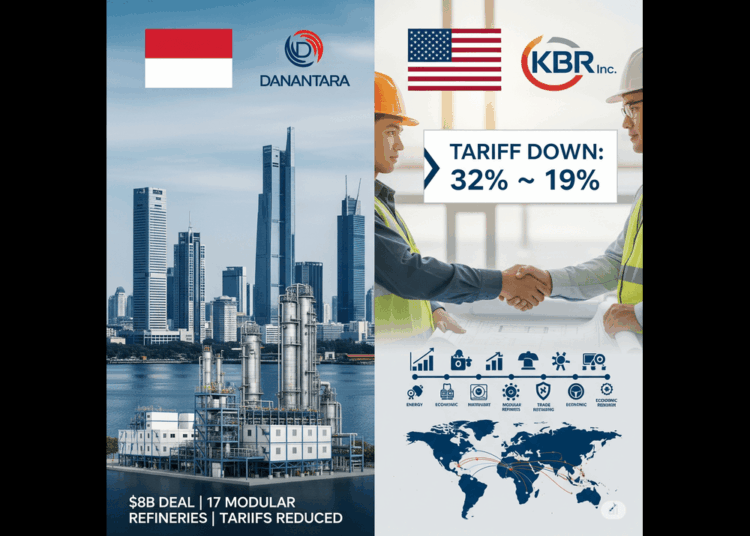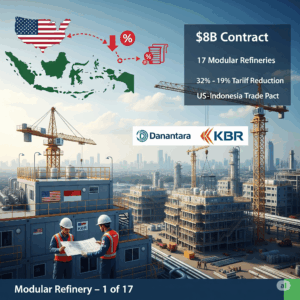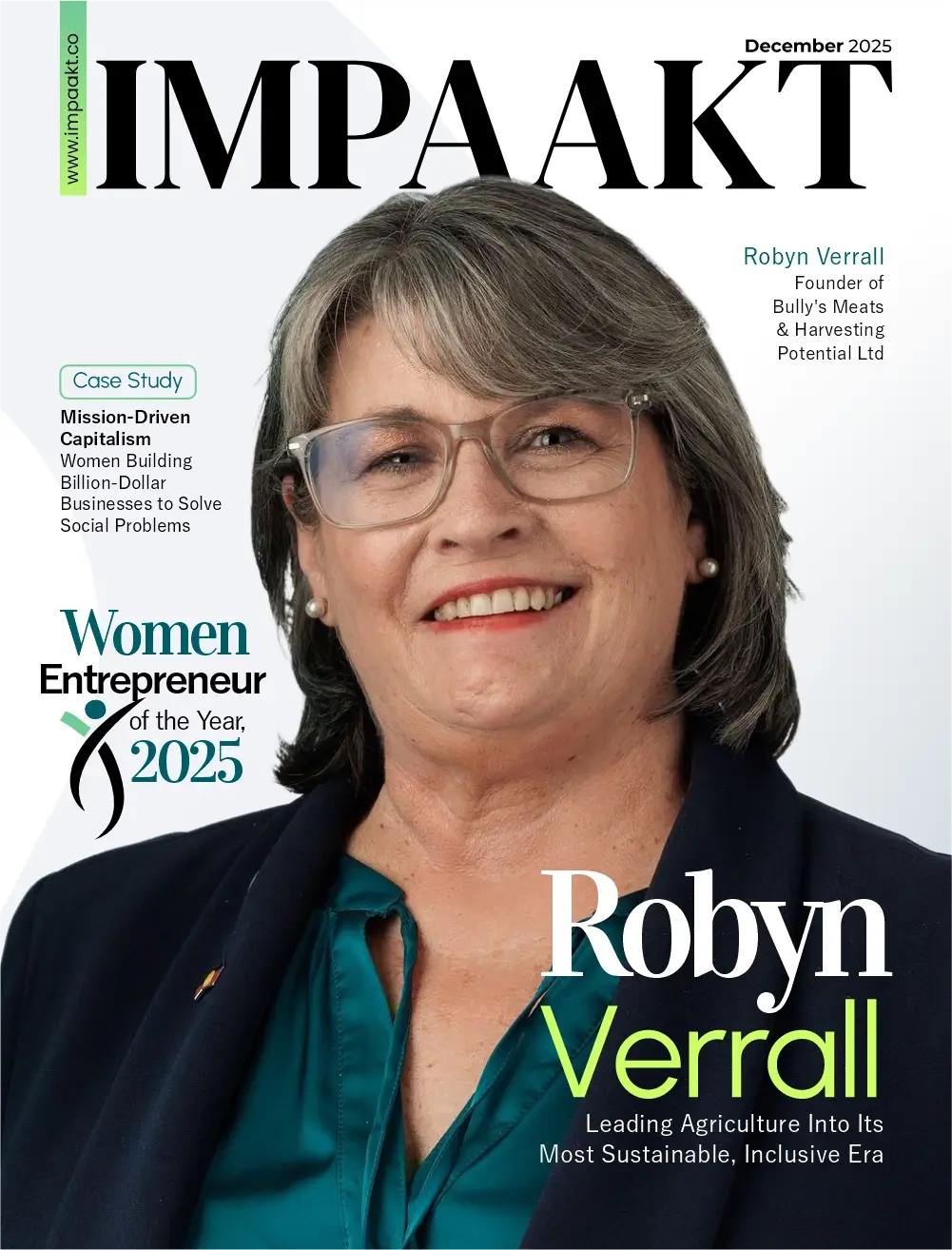In a significant move signaling deepening economic cooperation between Indonesia and the United States, Indonesia’s sovereign wealth fund, Danantara, is set to sign an $8 billion contract with U.S.-based engineering firm KBR Inc. to build 17 modular refineries, according to sources familiar with the matter and a presentation reviewed by Reuters.
This development comes on the heels of a new Indonesia-U.S. trade agreement reached last week, which resulted in a reduction of proposed U.S. tariffs on Indonesian goods—lowering the rate from a steep 32% to a more manageable 19%. The refinery deal, which had not previously been disclosed to the public, appears to be a key component of this broader economic understanding.
Modular Refineries at the Heart of US-Indonesia Trade Pact
At the core of this trade pact is the plan to deploy modular refineries—compact, scalable plants that can be built faster and more cost-effectively than traditional refineries. During a closed-door meeting with Indonesian business leaders on Monday, Indonesia’s Coordinating Minister for Economic Affairs, Airlangga Hartarto, revealed the refinery plan and the pending contract with KBR Inc., formerly known as Kellogg Brown & Root.
Two sources familiar with the negotiations confirmed to Reuters that the details were presented during the session, and the modular refinery project was explicitly mentioned in the presentation material.
Although neither Danantara nor KBR Inc. has issued public statements or responses to Reuters’ inquiries, the sources close to the project say the deal is expected to be finalized soon.
Strategic Economic Move
The proposed $8 billion deal represents a strategic step for Indonesia as it seeks to boost domestic energy infrastructure, reduce reliance on imported refined fuels, and foster technological collaboration with global partners. By choosing modular refinery technology, Indonesia can expand capacity more flexibly and sustainably, aligning with both economic and environmental goals.
From the American side, the deal helps solidify energy and trade ties in a region where strategic influence is increasingly contested. The agreement underscores the Biden administration’s ongoing commitment to strengthening partnerships in Southeast Asia through economic cooperation.
Trade Tariff Impact
While some aspects of the broader trade deal have been made public, including efforts to enhance energy collaboration and reduce import barriers, the modular refinery contract had not been revealed until now. The trade-off, in which Indonesia secures a lower tariff rate in exchange for opening large-scale infrastructure projects to U.S. companies, represents a win-win scenario for both nations.
This deal is also seen as a blueprint for future trade negotiations where infrastructure development and tariff policy intersect.
What Comes Next?
Once the agreement is finalized, the rollout of the 17 modular refineries will commence, potentially transforming Indonesia’s downstream energy sector. This infrastructure is expected to increase national refining capacity, generate thousands of jobs, and attract further foreign investment.
The success of this project could lead to more modular refinery deals in the region, positioning Indonesia as a pioneer in adopting scalable and efficient refining technology.
Stay ahead of global trade and infrastructure trends—follow IMPAAKT, your trusted top business magazine, for the latest impact-driven news.












